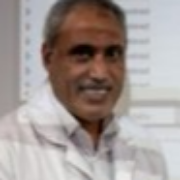Dear Editor,
In the recent paper entitled “Effects of Selenium on Stress Response in Coronary Artery Bypass Graft Surgery: A Clinical Trial Study”, Ali Mirmansouri et al. evaluated the effects of selenium administration on stress response in the coronary artery bypass graft surgery. In their paper, the authors administered selenium preoperatively and assessed the stress response. In this study, the stress response was estimated only by measuring the level of blood sugar (1). In our opinion, this study is weak because there are many confounding factors that can have effects on blood sugar; factors such as history of diabetes, type of surgery, levels of anesthesia and pain, administration of inotrops and steroids, release of stress hormones, resistance to insulin, and administration of the dextrose water can increase the blood sugar (2-4). The authors have not considered the effects of these confounding factors on blood sugar. On the other hand, the high blood sugar indirectly increases the stress level (4). Therefore, it was better that they measured the related biomarkers of stress in addition to the blood sugar for the assessment of stress response.
The stress response to injury or surgery is characterized by activation of nervous system and secretion of pituitary hormones (5).
Some of the biomarkers that are increased following the surgery include catecholamines and norepinephrine, adrenocorticotrophic hormone, growth hormone, insulin-like growth factor, prolactin, cortisol, glucagon and leptin (5, 6).
The cytokines have a main role in an inflammatory response to surgery. The most important cytokines released are interleukin-1, tumor necrosis factor-a (TNF-a) and interleukin -6. Also, C-reactive protein (CRP), and glutathione redox cycle increase in response to surgery (6, 7).
Some factors that have been decreased in response to surgery include insulin, T3, and thyroid stimulatory hormone (7).
In the Franke et al. study, the serum levels of proinflamatory interleukin (IL-6), IL-8, TNF-a, and CRP were measured to assess the stress response and there was a relationship between Il-6 synthesis and the degree of surgical trauma (8).
Elahi et al. evaluated the glutathione redox cycle in the background of cardiac surgery. They found an increase in free radical production during the cardiopulmonary bypass by measuring the increase in the total and oxidized glutathione (9, 10).
Hoda MR et al. indicated that cardiopulmonary bypass causes a stress hormonal response and they measured the plasma levels of neurohormonal stress factors, such as leptin, and cortisol (11).
According to the above-mentioned issue and in our opinion, it was better some of the neurohormonal and inflammatory factors in addition to blood sugar be measured to evaluate the stress response following the administration of selenium.
